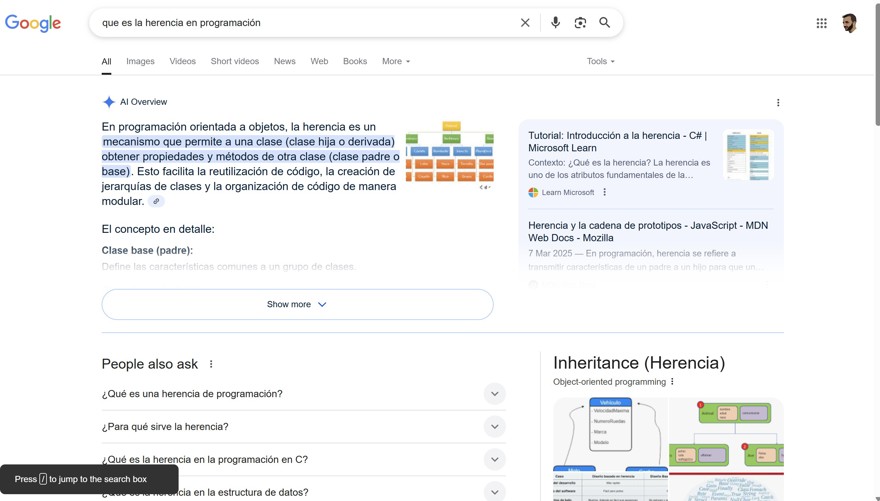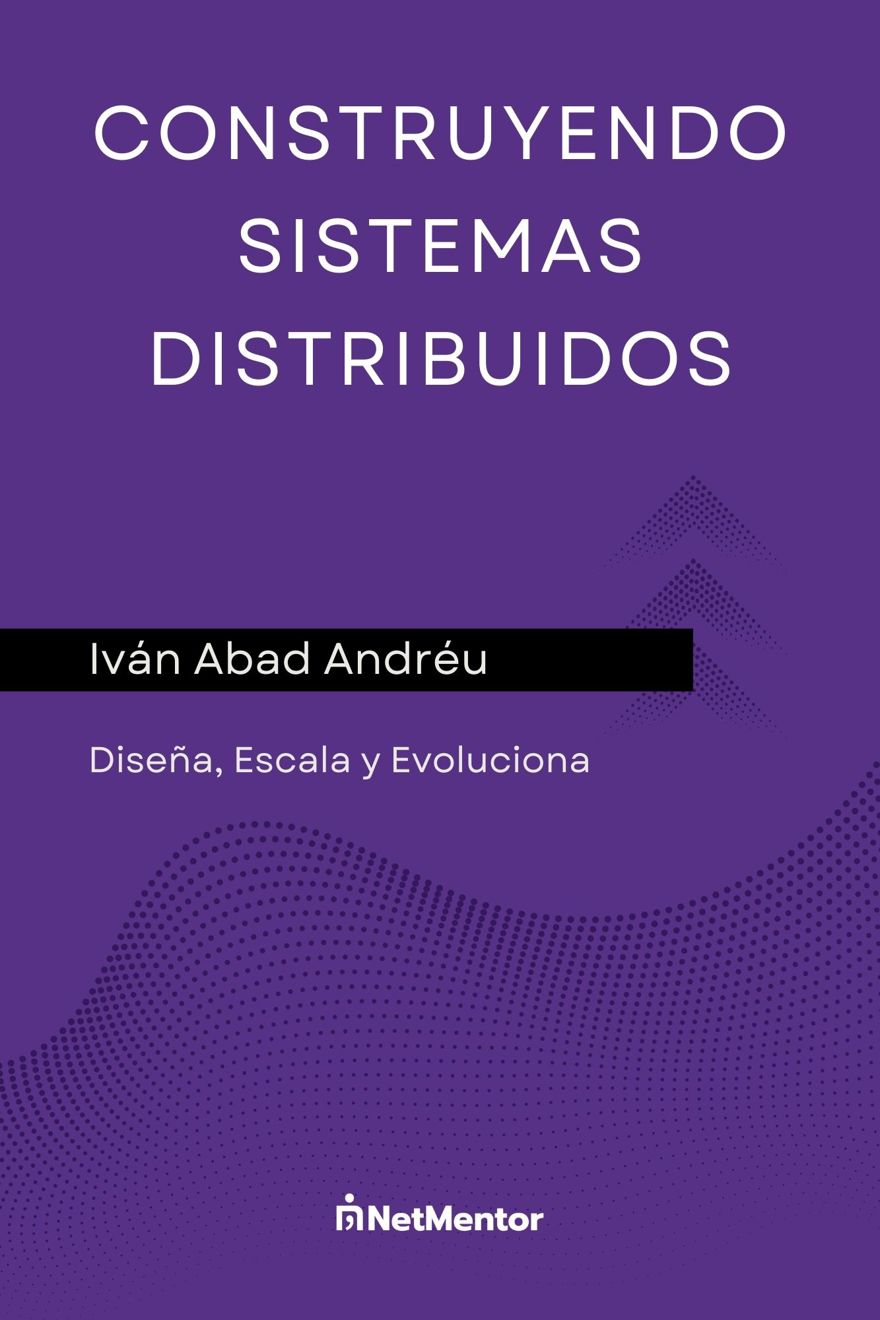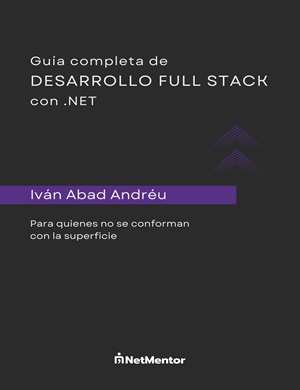Practically since I started with the blog and the channel, I’ve always been asked—and let’s be honest, I’ve wondered myself many times—why don’t I make my content in English?
And since I’m going to spend quite a while on a plane, I want to talk about it and the actions I’m going to take from now on.
Table of Contents
Note at the end: when I started this post, I had a completely different idea of where it was going to go haha.
1 - Content Creation
If you look at it objectively, creating content in Spanish doesn’t make much sense if you compare it to English.
The English market is objectively better: you have a bigger audience—a much bigger one—and it pays way more. And since most of you reading this are curious, let me give you an idea of the earnings. Programming content in Spanish earns about 1.5–2€ per thousand views on YouTube.
Of course, it varies a bit depending on the specific content. Right now, there’s a lot of content and companies going all in with AI, so if you make an AI video, the income goes up thanks to sponsors, etc.
Here’s another factor: adblockers, which are much more common in Spanish-speaking countries than in English-speaking ones, where "a lot" of people have YouTube Premium.
With these numbers, you can understand that most of us can’t make a living from this—not even cover a week’s groceries. But very few of us do it for the money.

In fact, livestreams pay much better (since they’re much longer).
To wrap up this section, the same content in English pays between 5–8€ per 1,000 views. That sounds like a lot, and it is. But remember, most people who watch programming videos are adults with much higher-than-average purchasing power, and that’s reflected in the price per view.
Even so, I’ve always created content in Spanish. Why?
I’ve said this a couple of times: it’s always been about helping people who don’t speak English reach the next professional level. In fact, some people criticize that because technically I’m training or giving an education to those who could be my competition in the future. I don’t see it that way, honestly—I see it as an opportunity for others to improve their lives. If everyone refused to help unless they got something in return, we’d all end up blind.
And even though I’ve never created anything for money, if you want to support me to keep creating content, remember I have several books for sale, and that really does help me 👀:
- https://www.netmentor.es/libros/construyendo-sistemas-distribuidos
- https://www.netmentor.es/libros/guia-completa-desarrollo-full-stack
2 - The Impact of AI
Artificial intelligence has impacted the world, that’s undeniable, and no one knows where this will end; the only thing clear is that it’s changed how we work and go about our daily lives.
Personally, I think it’s going to break the internet—honestly, things have already been bad for a while. When you search for something on Google, there are several growing problems.
First, in its answers, Google gives you a summary, which it pulled from a website. This means people don’t need to visit the website, because they already have the answer right on the search page.

If you look at the image, we don’t even see the links to the websites—mine is the third, and previously it would have been right there, but nowadays you have to scroll several times to even see it!
To give you numbers: in my case, my website traffic dropped by almost 50% when Google started implementing this feature. I went from about 6,000 daily visits to as low as 3,500 at one point. It’s frustrating. (Monday to Friday; visits drop on weekends.)
And that’s my case, with a reasonably well-known website. People with smaller blogs have likely seen a much bigger drop.
Or worse—even for digital media, this Google update would mean its death.
For reference, YouTube videos have received as many or even slightly more views.
The second problem with AI is the generation of low-quality content.
I already wrote a post a while ago about how you need to be careful with what gets shared and liked online, but it’s only gotten worse. Searching for any topic, you’re very likely to find clearly AI-generated content. And then what do you do—do you trust it? Because obviously, AI took it from somewhere else, probably without cross-checking, so I always look for the original website.
In fact, when ChatGPT first launched, I saw entire programming websites built with AI. You’d just ask the AI to write a post about a topic, and it would. You can even make an index and have it write posts for each item... and it doesn’t stop there. Then you ask it to do the same in C#, Ruby, Java, Node, Express, Rust, PHP, etc., and it doesn’t matter if it’s right or wrong because you’re just farming content and visits.
The good thing about AI is it’s quite good at detecting AI-generated content (at least in my experience), which means either new AIs aren’t being trained with this content, or at least it doesn’t seem like it at first glance.
That brings us to the current moment for AI. Since the audience isn’t stupid, most people are stopping searching on Google and starting to search with AI. Instead of googling “What is inheritance in object-oriented programming?” you now ask ChatGPT, Gemini, or whichever AI the same thing, and get a helpful answer in plain text.
Obviously for simple stuff, you don’t need to go further—ChatGPT explains it well. But for complex topics, you always want multiple perspectives. This is where content creators—especially web-based ones—have to adapt.
Personally, I’ve noticed that since early June, my traffic has skyrocketed to around 8,000 daily visits, and a large part of that comes from people searching on ChatGPT, since ChatGPT references the site. When you look up something complex, ChatGPT doesn’t just copy-paste a post—it takes several, mixes them, and then tells you where each bit comes from. That’s where my traffic comes from—people wanting to go deeper than what ChatGPT provides.
This is seriously changing my perspective on AI because I was starting to wonder, “What’s the point in continuing if ChatGPT is hiding us?” Even so, we’re still at the mercy of OpenAI not changing its mind or other AIs (that don’t show references) not becoming popular.
3 - Adapting to a World with Artificial Intelligence
This is where creators like me need to take advantage. YouTube’s already trying: it now translates titles, descriptions, and automatically dubs videos. Honestly, I think it’s terrible, but the reality is that 6% of my audience watches my videos translated!

But personally, I want to go further, and this connects with the first point of this post: Creating content in English.
I’ve never created content in English because it’s a ton of work. The realistic choice is either to make content in English or in Spanish. And honestly, there’s a lot of content in English, while there’s little in Spanish.
In fact, my free course on distributed systems that I made during 2021 and 2022 is still the only one on YouTube in Spanish. How is that possible?
I know that course has helped a lot of people since you all keep telling me—almost every week, someone writes to thank me ❤—which proves I made the right call creating content in Spanish.
But now with AI, I don’t need to worry about the language. I can connect my website to ChatGPT and have it do the English translation. That’s exactly what I’m going to do: from now on, my website’s content will be in both Spanish and English. I don’t have time to rewrite everything in English, but I do have 10 minutes to review a post and make sure the translation is good. That means the content remains 100% original, and the translation is just AI-based (I’ll add a disclaimer and link to the original), which I think is the perfect combination in my case.
Assuming it works as expected, because my first test didn’t go very well:

Just kidding—that was the first iteration. I’ve already fixed it and you can enjoy this post in English without issues!
By the way, I’ll also be able to discuss things with coworkers since my content will now be in English.
To finish this section, let me say that in my case I’m using N8N. This isn’t a sponsored post or anything, but if you want to sign up, here’s my referral link: https://n8n.partnerlinks.io/e6336fqvizpt
I use N8N because if you’ve watched some of my livestreams, you’ll know I’ve been experimenting with AI tools like N8N for workflows, Cursor or Wrap for vibe coding, etc. I use N8N for more things, so instead of connecting ChatGPT directly with code, I use it through N8N because it’s faster for me. If this were the only workflow, I’d have used ChatGPT directly.
The original idea for this post was to talk about agents and automating work, but as you can see, it’s gone in a different direction, so there will be another post about that :D.
For now, I’ll keep creating content, because I enjoy it and it keeps me updated on the latest trends. But if we were dependent on algorithms before, now we’re even more so.

